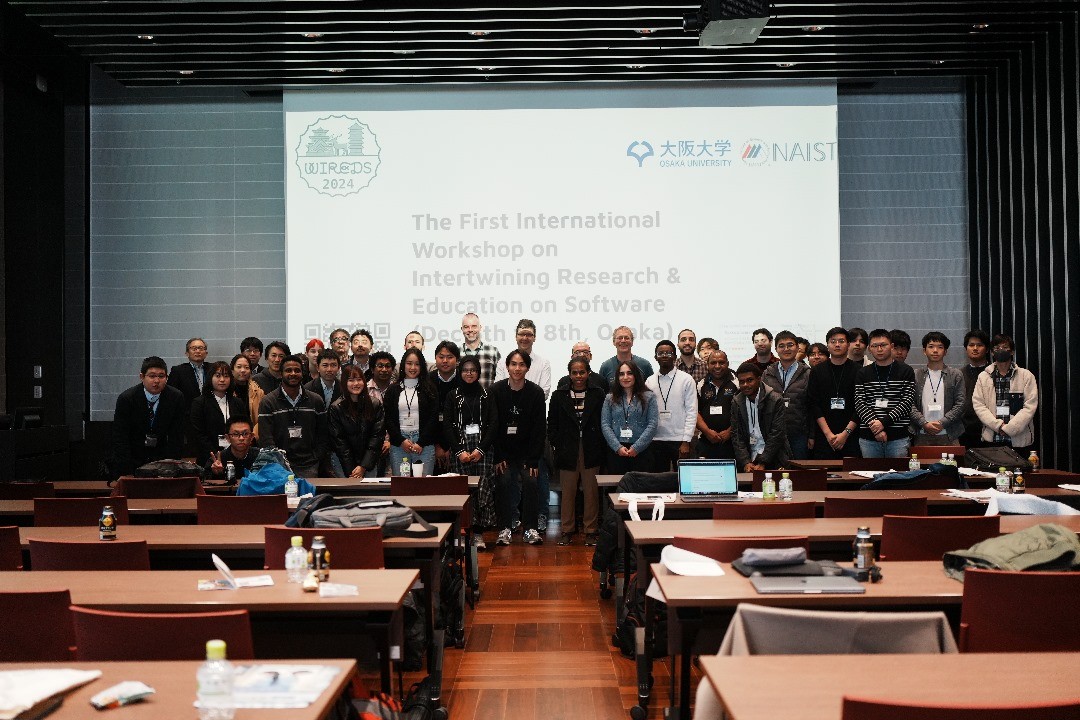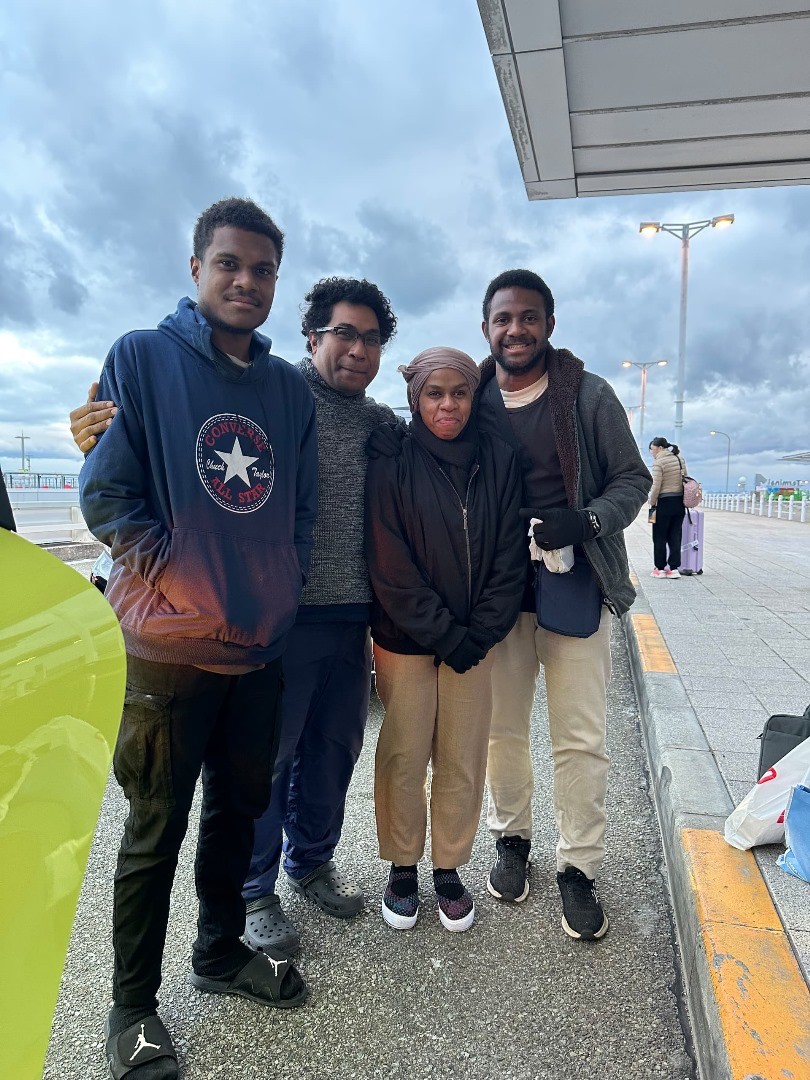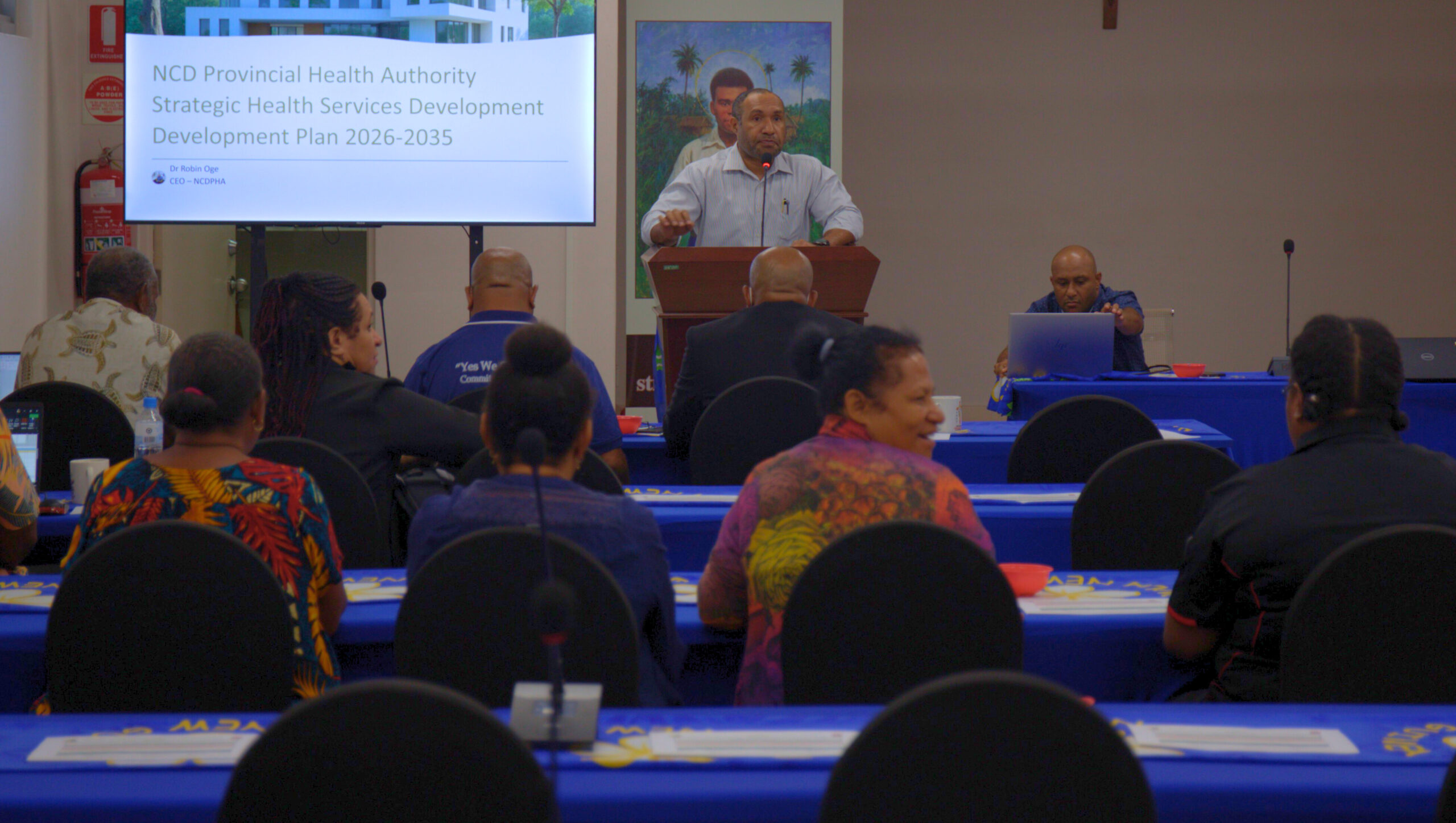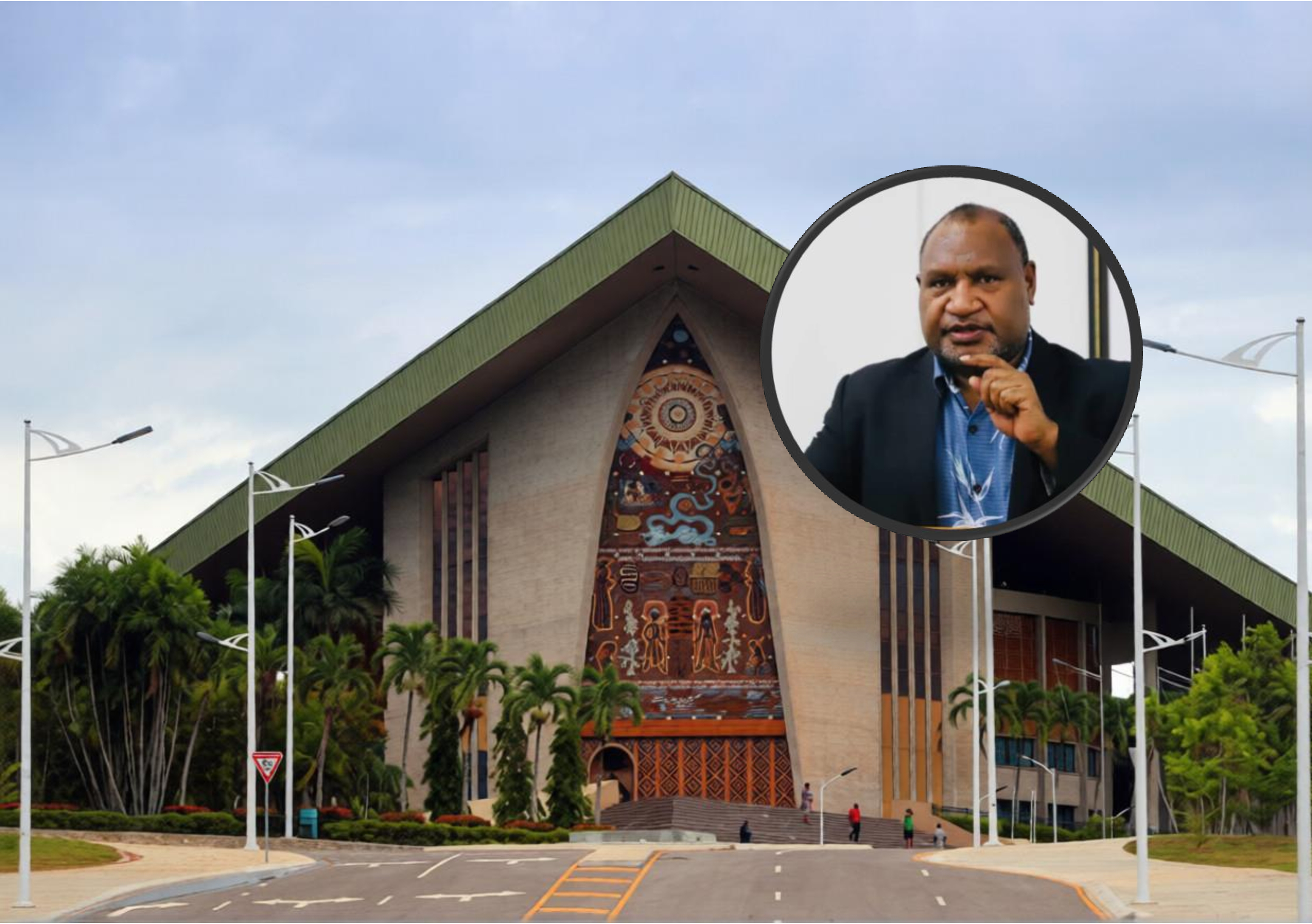 He was first introduced to this application by Dr Raula, a current professor at the University at Osaka, and Dr Kalu professor at NAIST back in 2022 when the application for the first batch was opened for 2023 Internship.
This was when the first three final year students namely Christopher Antipas, Adrianna Marpena and Paul Patan completed the online internship from June to Mid-July.
The criteria for eligibility to apply for the Software and AI Engineering 2024 internship at NAIST University, as a Year 3 Computer Science student at PNGUoT, is a 70% Weighted Average for each of the three years.
Floyd, along with two others, namely Jonathan Aru and Jacquelyn Yepenare, were the three successful candidates for 2024 and the second batch.
He was first introduced to this application by Dr Raula, a current professor at the University at Osaka, and Dr Kalu professor at NAIST back in 2022 when the application for the first batch was opened for 2023 Internship.
This was when the first three final year students namely Christopher Antipas, Adrianna Marpena and Paul Patan completed the online internship from June to Mid-July.
The criteria for eligibility to apply for the Software and AI Engineering 2024 internship at NAIST University, as a Year 3 Computer Science student at PNGUoT, is a 70% Weighted Average for each of the three years.
Floyd, along with two others, namely Jonathan Aru and Jacquelyn Yepenare, were the three successful candidates for 2024 and the second batch.
 Reflecting on the internship, Floyd shared with PNG HAUSBUNG challenges he and his two-course mate faced.
“Well to be honest our curriculum for Computer Science is a bit behind compared to the rest of the world (Japan especially).”
“Going through this internship enabled me to grasp what is expected to catch up on because I have always wanted to challenge myself”
“Also, through this internship I was hoping to bring some ideas back to PNGUoT to further enhance our students in academia to at least be on par with the world," Floyd added.
The internship had sets of topics that each interns have to choose from, and Floyd picked AI – Large Language Models (Chat GPT3.5 & 4) due to his curiosity and interest
“I was interested in LLMs because as a computer science student AI is the future of IT.”
“Hence, if I could do research on LLMs it would broaden my horizons on how it can be used for certain task automations in PNG.”
“Also, I hope it would establish that path for me to pursue a master's program in Japan in the next two or three years.”
NAIST University in Japan has an estimated thousand students pursuing master’s and PhD degrees, with a focus on contributing to a knowledge domain directly relevant to the software engineering community.
This represents a core difference compared to institutions in PNG, which lack such an approach.
"The main difference is that there is no site or knowledge domain where students can publish their final-year papers or research work.”
“In our departments, these papers are simply stored away until they collect dust.”
“Instead of making them accessible for other students to view, contribute ideas, or build upon, the research remains unused.”
“As a result, students in PNG often end up reinventing the wheel rather than innovating and advancing ideas."
Floyed further explained the difference between institutions in Papua New Guinea compared to Japan.
“PNG needs to have infrastructure and policy frameworks in place like for example The Digital Government Act 2022.”
And when asked about the future of AI in PNG and will it only make us lazy? Floyd answered “the fear of AI mirrors past scepticism of tools like calculators, once seen as threats to human effort but now recognized for driving innovation.”
“While PNG faces immediate issues solvable with basic software, AI could revolutionize progress if supported by thoughtful government planning.”
“For deeper insights, consult PNG's IT leaders like Christopher Vagalia, Priscilla Kevin, Crystal Kewe, Winifred Kula, or Dr. Kula” Floyd recommended.
And to conclude his interview with PNG HAUSBUNG, Floyd Hamba shared an inspiring message to the two current and aspiring computer science students.
“Everything you need is at your fingertips. With a computer and good internet, the potential to create wonders is limitless.”
“If the classroom feels limiting, explore free online courses and tutorials. Stay committed, and you could achieve in two years what others do in four. The sky is the limit for those who take charge of their learning journey.”
In the ever-evolving field of computer science, the key to success lies in seizing the endless opportunities for learning and innovation.
With determination and the right resources, students have the power to transform challenges into breakthroughs and create a world of possibilities.
Reflecting on the internship, Floyd shared with PNG HAUSBUNG challenges he and his two-course mate faced.
“Well to be honest our curriculum for Computer Science is a bit behind compared to the rest of the world (Japan especially).”
“Going through this internship enabled me to grasp what is expected to catch up on because I have always wanted to challenge myself”
“Also, through this internship I was hoping to bring some ideas back to PNGUoT to further enhance our students in academia to at least be on par with the world," Floyd added.
The internship had sets of topics that each interns have to choose from, and Floyd picked AI – Large Language Models (Chat GPT3.5 & 4) due to his curiosity and interest
“I was interested in LLMs because as a computer science student AI is the future of IT.”
“Hence, if I could do research on LLMs it would broaden my horizons on how it can be used for certain task automations in PNG.”
“Also, I hope it would establish that path for me to pursue a master's program in Japan in the next two or three years.”
NAIST University in Japan has an estimated thousand students pursuing master’s and PhD degrees, with a focus on contributing to a knowledge domain directly relevant to the software engineering community.
This represents a core difference compared to institutions in PNG, which lack such an approach.
"The main difference is that there is no site or knowledge domain where students can publish their final-year papers or research work.”
“In our departments, these papers are simply stored away until they collect dust.”
“Instead of making them accessible for other students to view, contribute ideas, or build upon, the research remains unused.”
“As a result, students in PNG often end up reinventing the wheel rather than innovating and advancing ideas."
Floyed further explained the difference between institutions in Papua New Guinea compared to Japan.
“PNG needs to have infrastructure and policy frameworks in place like for example The Digital Government Act 2022.”
And when asked about the future of AI in PNG and will it only make us lazy? Floyd answered “the fear of AI mirrors past scepticism of tools like calculators, once seen as threats to human effort but now recognized for driving innovation.”
“While PNG faces immediate issues solvable with basic software, AI could revolutionize progress if supported by thoughtful government planning.”
“For deeper insights, consult PNG's IT leaders like Christopher Vagalia, Priscilla Kevin, Crystal Kewe, Winifred Kula, or Dr. Kula” Floyd recommended.
And to conclude his interview with PNG HAUSBUNG, Floyd Hamba shared an inspiring message to the two current and aspiring computer science students.
“Everything you need is at your fingertips. With a computer and good internet, the potential to create wonders is limitless.”
“If the classroom feels limiting, explore free online courses and tutorials. Stay committed, and you could achieve in two years what others do in four. The sky is the limit for those who take charge of their learning journey.”
In the ever-evolving field of computer science, the key to success lies in seizing the endless opportunities for learning and innovation.
With determination and the right resources, students have the power to transform challenges into breakthroughs and create a world of possibilities. 






